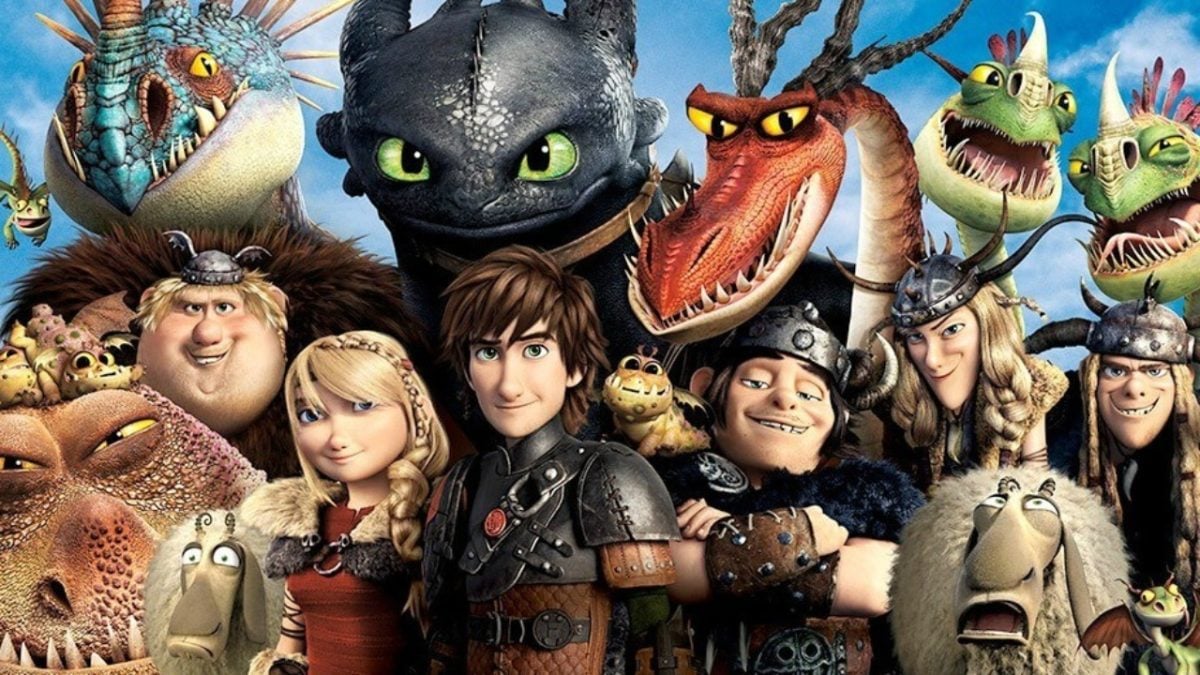Dreamworks is the world-renowned animation studio that brought us universally successful franchises like Shrek and Kung Fu Panda. Back in 2010, following the profitable releases of Madagascar and Monsters vs. Aliens, Dreamworks unveiled its now 12-year-old project: How to Train Your Dragon. There are countless species of winged beasts in Dreamworks’ trilogy — and many more discovered in later spin-offs — but let’s focus on the main characters and explore their attributes in finer detail.
Loosely based on the children’s books of the same name by British author Cressida Cowell, the franchise — which now spans three feature films, five short films, and three television series — follows a young Viking named Hiccup Horrendous Haddock III (Hiccup), son of Stoick the vast, chief of the island known as Berk. One day, Hiccup captures an illusive and dangerous dragon known as a Night Fury and over the course of several weeks, manages to befriend it. Hiccup and Toothless — affectionately named for his retractable teeth — embark on a journey to discover every species of dragon in existence, but find themselves continuing Berk’s legacy and becoming Chief of Berk and Alpha Dragon, respectively.
What are the different species and classes in How To Train Your Dragon?
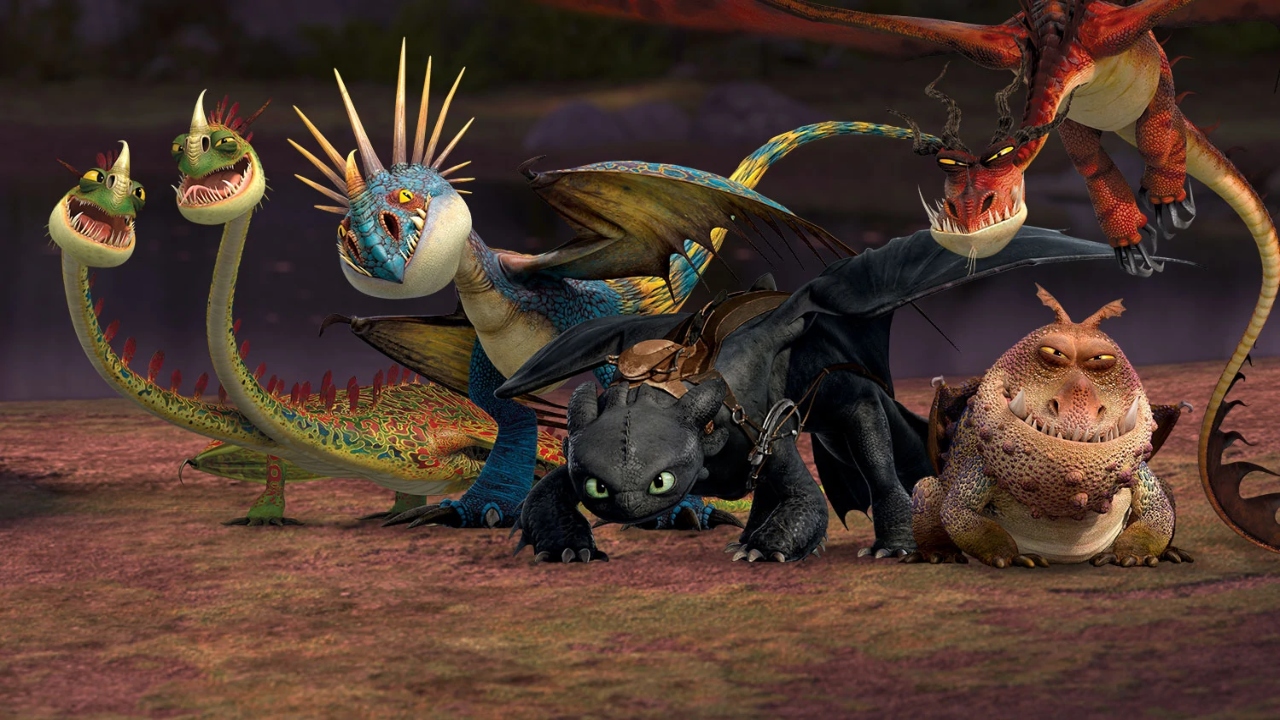
According to the fan-made wikipedia website for How To Train Your Dragon, there are 85 different species of dragon appearing in the entire franchise. This plethora of genus has all been recorded throughout history in an all-encompassing guide known as the Dragon Manual, which Hiccup procures early in the first film.
In the manual, there are descriptions provided for each species of dragon. For example, Hiccup recites the Night Fury biography, which reads as follows: “Night Fury. Speed: Unknown. Size: Unknown. The unholy offspring of lightning and death itself. Never engage this dragon. Your only chance: Hide and pray it does not find you.” Additionally, Hiccup says that a Night Fury “never steals food, never shows itself, and never misses.”
The Night Fury falls under Strike Class; there are seven elemental classifications for dragons. These are;
- Boulder Class — Mostly big and bulky dragons whose abilities relate to stone and great strength. They tend to feel more at home on the Earth or even under it. They are usually even-tempered and friendly even before being tamed.
- Mystery Class — Enigmatic and highly varied dragons who exhibit incredibly unusual and unorthodox abilities, some almost supernatural in nature.
- Sharp Class — Fierce dragons who all utilize sharp projectiles or spiked body parts. They are also sharp mentally and usually super agile.
- Stoker Class — Dragons who take their species mastery of flame to another level and utilize fire in many unique and lethal ways. Personality-wise, they are often aggressive and fearless.
- Strike Class — Dragons who possess high speed and great intelligence. They are infamous for their often alarmingly fast and devastating attacks.
- Tidal Class — Contains some of the biggest dragons in existence. Dragons who all dwell in water, both fresh and salt.
- Tracker Class — The newest class of dragon, replacing the Fear Class. All of these proud dragons are defined by their unmatched tracking abilities, sharp senses, and great cleverness.
The Mystery Class may be used as a “temporary” class until enough details are disclosed about a species in order to classify them accordingly.
Some species have not shown characteristics distinguishable enough to be classified, therefore the lack of information makes it impossible to label them. These dragons are appropriately grouped under Mystery Class. Besides the core seven, there is another sub-category known as Fear Class, containing only three dragon species; the Hideous Zippleback, the Flightmare, and the Snaptrapper. After the events of the feature-film trilogy, this class was removed and replaced with the Tracker Class, as Vikings no longer feared dragons and lived in harmony with them.
What are the main dragon names and species in How To Train Your Dragon?
Technically, there are only five “main” characters in How To Train Your Dragon, solely counting the core riders and their companions; Hiccup and Toothless, Astrid and Stormfly, Snotlout and Hookfang, Fishlegs and Meatlug, and Ruffnut & Tuffnut and Barf & Belch. However, after the trilogy finds its conclusion in How To Train Your Dragon: The Hidden World, there were several more characters introduced that could constitute as “main.” Regardless, the following list only includes the core dragons across all three films — otherwise we’d be listing them forever.
Toothless — Night Fury / Strike Class
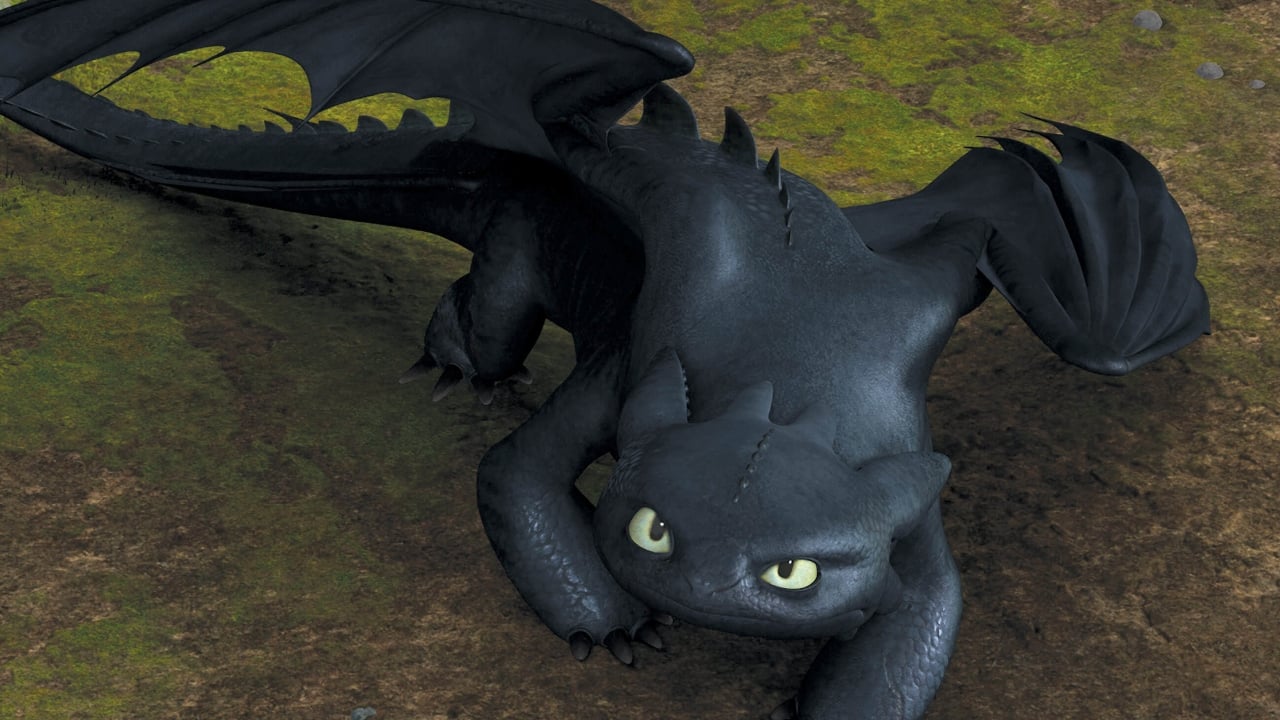
As the last remaining Night Fury, Toothless is an apex predator and indisputably valuable. He becomes the Alpha of the dragons in The Hidden World and commands respect from humans and dragons alike. Although Toothless is misinterpreted as a savage beast, the only ferocity he can be guilty of is being fiercely protective over Hiccup – his handler, rider and best friend. Toothless is playful, inquisitive and the most intelligent of all dragons. Additionally, Toothless was the first-ever dragon to be tamed and befriend a human, which marked the dawning of a new era with a newfound truce between vikings and dragons.
Unnamed Light Fury — Light Fury / Strike Class

Queen of The Hidden World, the unnamed Light Fury that Toothless encounters in the third film seems to be the female counterpart to a Night Fury — sharing the same characteristics but existing as a ‘sunnier’ version — distinguishable more by gender than abilities. Just like the Night Fury can camouflage during nightfall due to its jet-black scales, the Light Fury can do just the opposite; she can blend in with brighter skies even in the daylight due to her shimmering translucent scales. Although the Light Fury relies more on stealth than confrontation, the Strike Class dragon’s firepower and ferocity can rival that of a Night Fury if need be. The Night Fury and Light Fury are described as close relatives, similar to lions and tigers within the genus Panthera. Moreover, the Light Fury can temporarily transform each of her scales into a reflective surface that mirrors her surroundings, essentially rendering her invisible.
Stormfly — Deadly Nadder / Tracker Class (formerly Sharp Class)
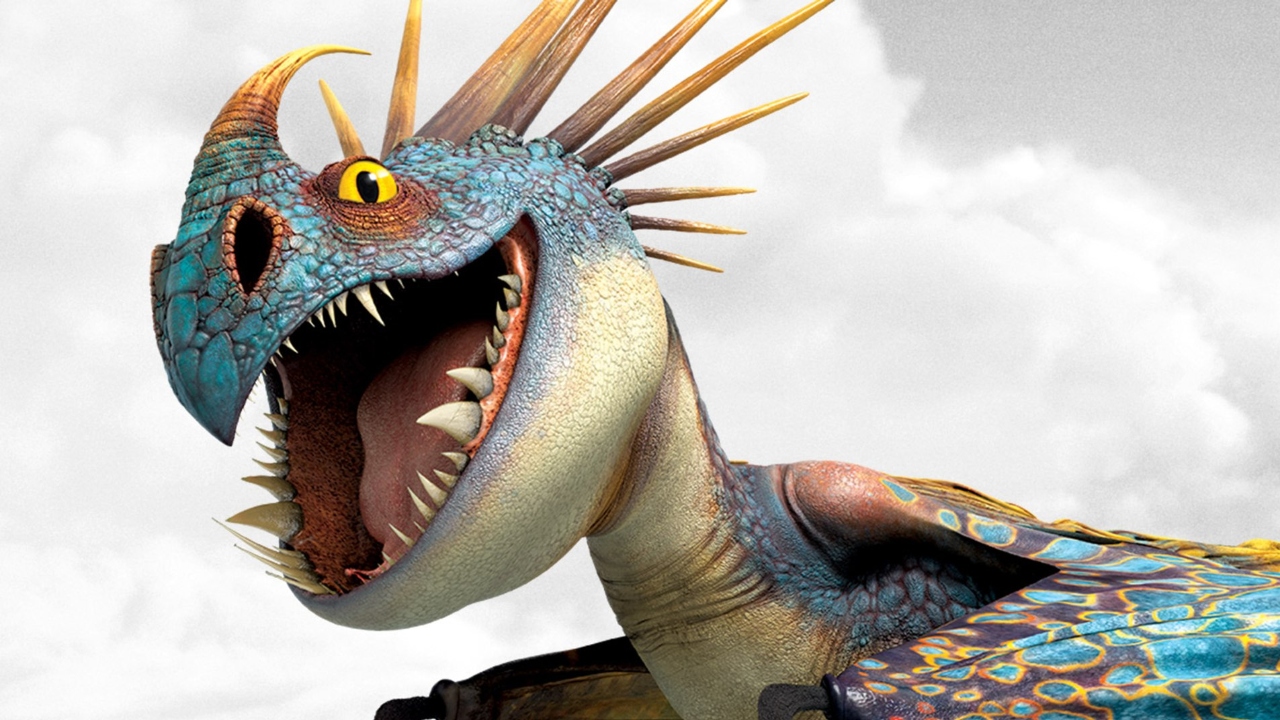
Astrid Hofferson’s Deadly Nadder, Stormfly, is classified under the Tracker Class — formerly the Sharp Class — and loves to have fun. Stormfly grooms and preens herself like a fastidious bird, giving the initial impression of an uptight and vain personality, Deadly Nadders are unmistakably playful and adventurous. Deadly Nadders are always battle-ready, able to raise the thousands of sharp spines that stud their bodies and fling them with accurate precision. When the shooting starts, there’s no safer place to be than face-to-face with a Nadder — right in front of its nose — because it won’t be able to see you. Head of Character Animation for How To Train Your Dragon, Simon Otto, described Deadly Nadders as having “a bit of an emu’s walk and the posture of a Tyrannosaurus rex.” Aside from its deadly and venomous bristles, Nadders have a keen and powerful sense of smell and enhanced speed.
Meatlug — Gronckle / Boulder Class

Meatlug is a Gronckle belonging to Fishlegs Ingerman. Gronckles are Boulder Class dragons, if it wasn’t immediately evident from their rough, sandy exterior. Unlike most other Gronckles, Meatlug is extremely affectionate toward others — especially her rider — and has a huge appetite, much like Fishlegs. Meatlug’s gentle nature defied every belief held by vikings before the end of the Dragon War, especially in regards to all dragons being monstrous, heartless and homicidal. What Gronckles lack in raw power, they make up for in cunning tactics and strategy. Meatlug in particular, though not every Gronckle, has adopted somewhat of a dog-like personality — as shown when she rolls around in the dirt and whines. Grockles are one of the toughest dragons out there, but they can be extremely lazy and often spend their time sleeping in communal heaps. Sometimes, Gronckles even fall asleep while flying. Although Gronckles are slow fliers, they substitute their speed for impressive manoeuvrability.
Hookfang — Monstrous Nightmare / Stoker Class
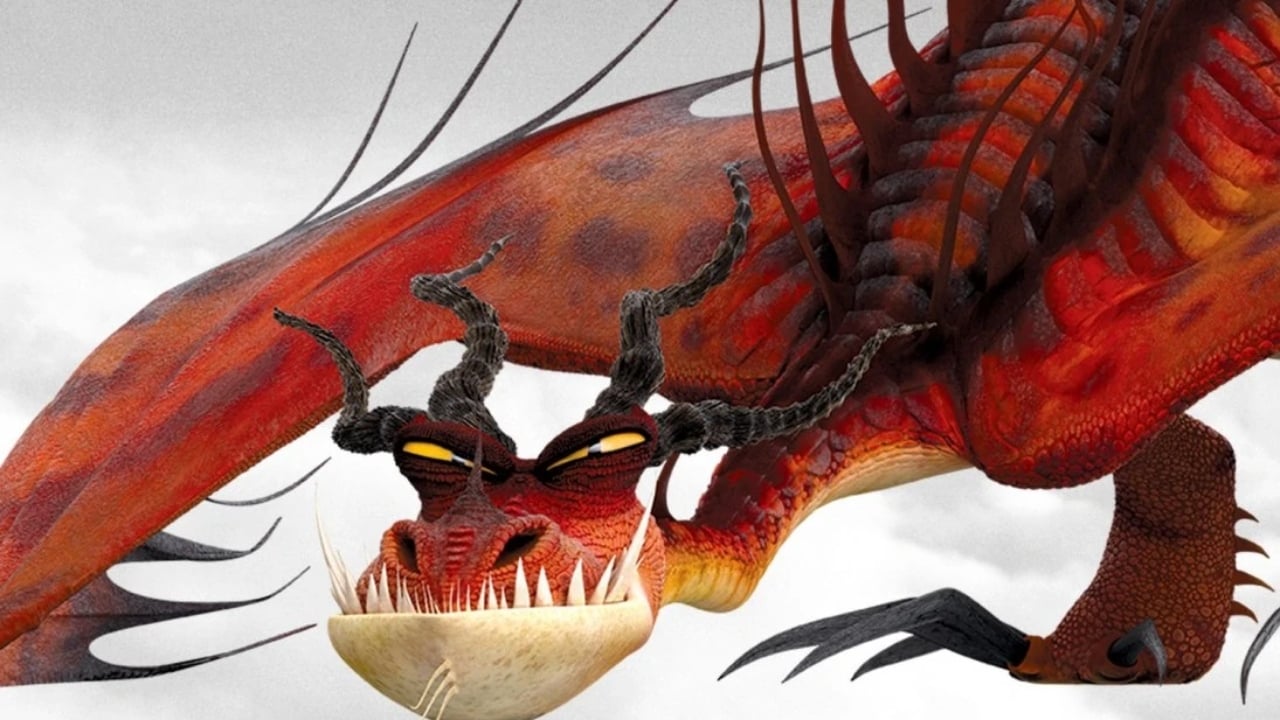
Hookfang is Snotlout Jorgenson’s Monstrous Nightmare, a Stoker Class dragon. Monstrous Nightmares are hot-headed (pun intended) and possess snake-like features; there are none more ferocious and feared than the Monstrous Nightmare, which — as Hiccup puts it — has a “nasty habit of setting itself on fire.” The Nightmare is aggressive, territorial, and can swallow a viking whole; when attacking its prey, it produces a kerosene gel fire that is thick and almost liquid-like, resembling hot magma. Chris Sanders, writer-director of How To Train Your Dragon, said, “We always felt he was the Mick Jagger of dragons. He’s a natural-born performer who comes out engulfed in flames because they can set themselves on fire.” While most dragons are compliant, Hookfang enjoys doing the exact opposite of Snotlout’s commands. Interestingly, it is Hookfang’s kerosene gel that is used to ignite Hiccup’s sword, Inferno, and he also loves to roll around in yak dung. Charming.
Barf and Belch — Hideous Zippleback / Mystery Class (formerly Fear Class)
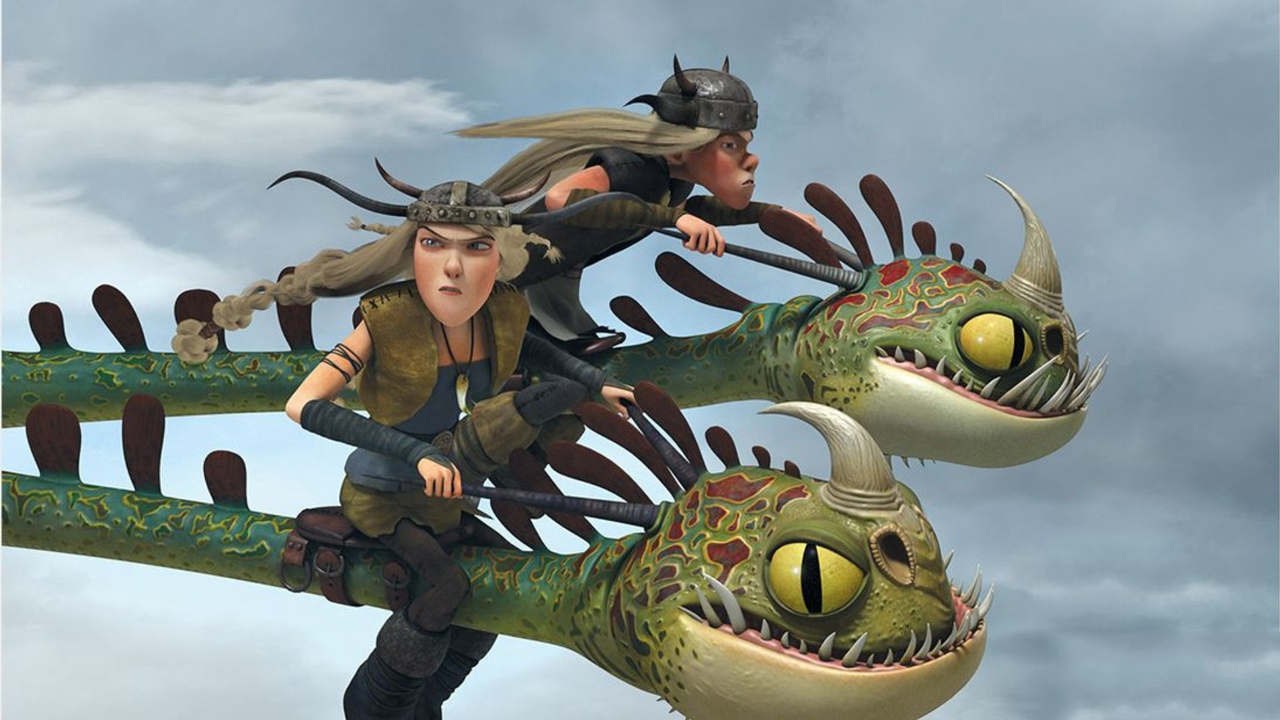
The Hideous Zippleback, described by Hiccup as “exotic” — “two heads, twice the status” — is a Mystery class dragon. The two-headed terror belongs to Ruffnut and Tuffnut, aptly named Barf and Belch in reference to their uniquely compatible abilities. Of all the dragons featured in How To Train Your Dragon, the Zippleback is the most unusual and dangerous as well as one of the largest you might encounter. The Zippleback’s twin heads are distinctively different, with separate thoughts, personalities and functions; instead of breathing fire, a Zippleback makes explosions — one head breathes gas, and the other head lights it. Zipplebacks are solitary and prefer hunting alone; they come out after sundown, prowling dark forests for victims. More emotive than most Zipplebacks, Barf and Belch are addicted to destruction and enjoy inciting chaos, but just like Ruffnut and Tuffnut, Barf and Belch often bicker incessantly.
Skullcrusher — Rumblehorn / Tracker Class
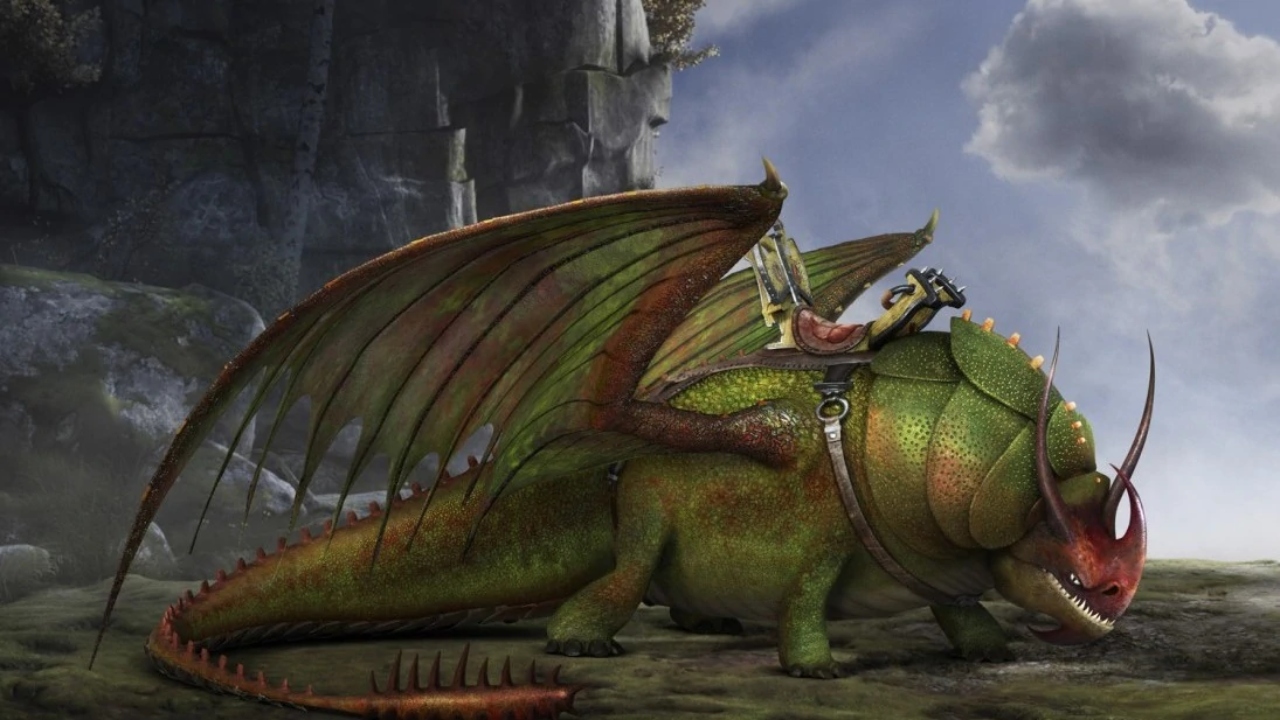
First appearing in How To Train Your Dragon 2, the Rumblehorn originally belonged to Stoick the Vast before his death, after which it was bestowed upon Eret, Son of Eret. According to a helpful biography from Fishlegs, “Rumblehorns shoot long-ranged fire missiles which explode on impact. They can find anything on scent for miles away, even with just a weak scent from a helmet.” Simon Otto revealed that the Rumblehorn was “inspired by a rhinoceros, a truffle pig, a rainbow dung beetle, a jackhammer, and a battle axe.” Skullcrusher’s personality corresponds perfectly with that of Stoick; he is stern and serious-looking, and sometimes even a little stubborn. Once Skullcrusher has caught wind of a scent, he is doggedly determined to track down its source. However, just like Stoick, Skullcrusher also has a playful side that isn’t evident from first impressions but reveals itself after an extended period of time. In How to Train Your Dragon: The Hidden World, Skullcrusher was the first dragon to rush in to rescue Toothless when Grimmel the Grisly captured him, thus proving his bravery and loyalty.
Cloudjumper — Stormcutter / Sharp Class

Setting them apart from other dragons, Stormcutters possess quadruple wings that provide them with heightened speed, control, and grace in the skies. The gargantuan Stormcutter carves spirals in the sky and shoots fiery arcs of destruction at its adversaries, combining sheer size with pinpoint accuracy and skill. Simon Otto has disclosed that “Stormcutters were originally inspired by grey owls, great danes, vampire bats and an X-wing starfighter.” Similar to a Monstrous Nightmare, Stormcutters also have flammable saliva of unfathomable power, able to engulf surrounding prey effortlessly. Cloudjumper belongs to Valka, Hiccup’s mother and Stoick’s long-lost wife, and has been her faithful companion for over twenty years. Due to over two decades of experience, Cloudjumper and Valka share a wordless shorthand when flying that almost resembles a telepathic or mystic connection. Similar to Stormfly, Cloudjumper is prideful and dignified, though not necessarily in a vain manner, but more of an egotistical one; Cloudjumper thinks of himself as the top dragon in Valka’s mountain – second only to the Bewilderbeast.
Obviously, these are just a handful of dragons featured in the How To Train Your Dragon franchise, but they are infinitely the most crucial to protecting Berk and the unbreakable bond between humans and dragons from those who seek to either kill or enslave dragons for their own nefarious purposes.

